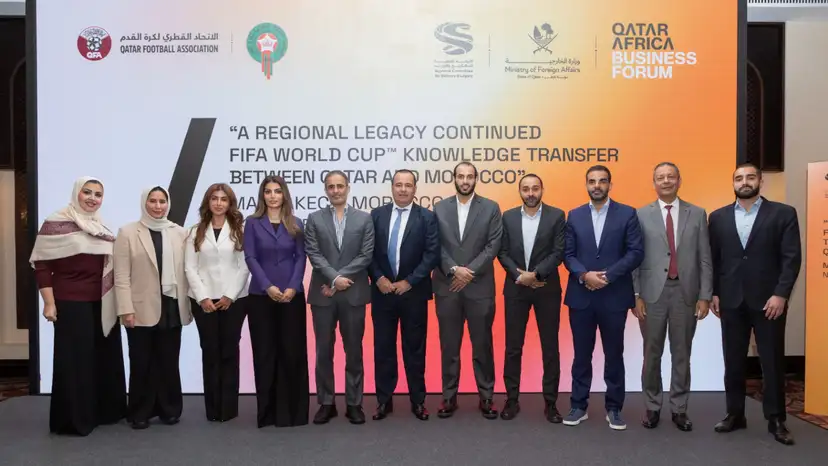Qatar World Cup 2022, the most compact FIFA World Cup, set new standards with record attendance, cultural richness, and a sustainable model for future hosts.
A high-level delegation from Qatar’s Supreme Committee for Delivery & Legacy (SC) recently met with officials in Marrakech, Morocco, to share key insights from Qatar’s successful hosting of the 2022 FIFA World Cup.
The meeting, held on the sidelines of the Qatar Africa Business Forum and as part of the Qatar-Morocco 2024 Year of Culture, aimed to assist Morocco in its preparations for the 2030 FIFA World Cup, which will be co-hosted by Morocco, Spain, and Portugal.
Ghanim al-Kuwari, SC’s deputy director general for Technical Services, highlighted Qatar’s commitment to regional collaboration.
“Our vision for the FIFA World Cup was to represent not only Qatar but also the Arab world and the broader MENA region,” he said.
“Events like this demonstrate our dedication to ensuring Arab and Muslim nations benefit from our experience, and we look forward to working closely with our Moroccan partners for a successful 2030 tournament.”
Thorough preparation efforts
The event focused on Qatar’s extensive preparation process, covering critical topics such as operational logistics, workforce and volunteer management, infrastructure development, and legislative frameworks.
Representatives from the Royal Moroccan Football Federation, the Morocco 2030 bid team, and various government entities engaged in discussions to identify ways to apply these lessons as Morocco prepares for its historic 2030 World Cup hosting role.
Mouad Hajji, the General Coordinator for the bid team, praised Qatar’s transparency and collaboration.
“We are deeply grateful for this enlightening session on what is recognised as the best FIFA World Cup in history,” he said. “Qatar’s ability to overcome challenges and deliver an extraordinary experience provides us with a valuable roadmap for our journey toward 2030.”
The FIFA World Cup 2030 will span 20 host cities across Morocco, Spain, and Portugal, marking the first-ever edition in North Africa and the second in the Arab world.







